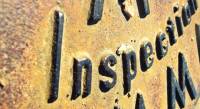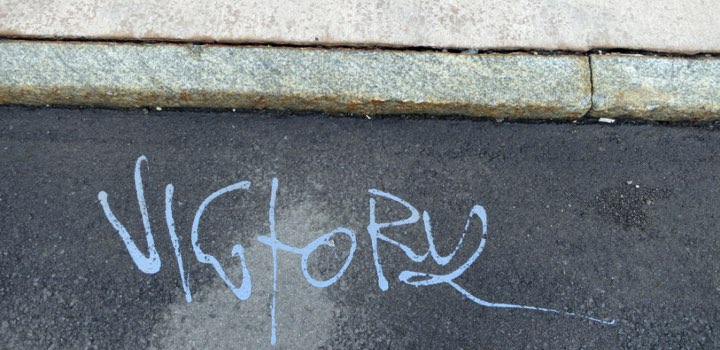Table of Contents
Fact Check
Was Ex Parte Ruling an Axanar Victory?
Right after a federal magistrate issued an October 31, 2016, ruling ostensibly denying CBS and Paramount’s ex parte motion, Axanar producer Alec Peters was quick to declare victory, but it may not have been as complete as he portrayed.
See also: Court Orders Peters Deposition, Other Plaintiff Requests
The magistrate’s ruling explains it officially denied the motion but still granted a number of specific items — which happened to be the three most important sought by the plaintiffs. Still, shortly after the ruling, Peters tweeted from the Axanar account:
![]() @StarTrekAxanar 10/31/16 12:51 pm
@StarTrekAxanar 10/31/16 12:51 pm
Axanar wins another small legal battle as CBS/Paramount ex parte motion is DENIED1)
He went on to elaborate in the Axanar Fan Group on Facebook:
CBS/Paramount’s ex parte motion was DENIED. The only things the judge gave them were things we had already agreed to!
1) They get to depose me again.
2) We agreed to reduce the financials status from Highly Confidential to confidential since our financials have now been reviewed and financial statements prepared by our accountant.
3) A privilege log (a simple log of communications with attorneys)
So another big win for Axanar and a slap down for CBS/Paramount. The only things the judge ordered were things we had already agreed to.2)
 FACT CHECK is an AxaMonitor series examining claims made with regard to Axanar, chiefly Alec Peters’ blog posts, interviews and public announcements. Read the series »
FACT CHECK is an AxaMonitor series examining claims made with regard to Axanar, chiefly Alec Peters’ blog posts, interviews and public announcements. Read the series »
Peters' New Deposition
In the course of deposing Prelude to Axanar director Christian Gossett on October 22, the plaintiffs discovered a trove of emails the defense had failed to turn over, prompting the studios’ lawyer to ask the court to order the defense to provide additional information before the upcoming November 2 cut-off for discovery in the copyright infringement case against Axanar.
Here’s a fact check of Peters’ claim the judge had only ordered what Axanar’s attorney, Erin Ranahan had already agreed to in her October 28 motion opposing the ex parte order.
True or False?
PARTLY TRUE Peters’ Second Deposition. It is true that Peters’ attorney offered to make him available for a second deposition. However, she placed the following restrictions on that offer:
- Two-hour limit to the deposition.
- Questions limited to asking questions about documents received after his last deposition [October 19].
Federal Magistrate Judge Charles F. Eick, however, ruled differently, ordering:
- A five-hour limit.
- No restrictions on what Peters could be asked.
The win described by Peters neatly fails to mention that the whole reason for the additional deposition was his initial failure to disclose the hundreds of pages of his emails Gossett had turned over to the plaintiffs on October 22. According to Ranahan’s opposition, another hundred emails were turned over six days later. It wasn’t known if they are the same emails.
Loosening Restrictions on Financial Information
CBS and Paramount had sought to broaden the number of people allowed to view the financial summary Peters said had been prepared by his accountant showing how he spent the money donated by Star Trek fans for the production of the Prelude to Axanar short film and the Axanar feature.
The financials were marked “highly confidential,” or “attorneys eyes only,” and the plaintiffs wanted to be able to refer to the information in deposing upcoming witnesses. The studios also claimed that Peters didn’t want the information to become public because it contained embarrassing information about his spending, having earlier pointed to his paying for personal expenses out of the fund.
Peters claimed the defense had already indicated its willingness to loosen restrictions on the financial information, which his attorney said was only Peters’ notes in a Quicken document that had not yet been reviewed by an accountant.
True or False?
PARTLY TRUE Sharing Financial Information. It is true that Ranahan was concerned about Axanar’s financial data getting out, especially because it was only Quicken notes, not a professionally prepared financial statement, which could be used by detractors to “bring down Alec.”3)
In her motion opposing the ex parte motion, Ranahan noted for the court that she had just turned over to the plaintiffs a “revised version of Mr. Peters’ Quicken notes … that will be designated only “confidential,” which moots this issue.”4)
While Peters’ victory claim makes it appear the defense was now willing to share the information in good faith, it neglects his attorney’s intention, as stated in the opposition motion, to eventually seek to prevent information about how Peters spent donors’ money from being used at trial:
These were preliminary notes from Quicken and were not a final accounting, which is still being prepared. Despite Defendants’ position that these documents lack any relevance to this case, Defendants produced the financial information they had available at the time in an effort to be cooperative and avoid wasting the Court’s time on discovery disputes. Defendants fully intend to seek to exclude these expenditures before trial.5)
CONTRADICTORY Which Financial Data? It’s unclear precisely which financial information Peters, his attorney and the studios’ lawyers are talking about, with each party describeing the records quite differently.
- Financial “Summary”. In its October 27 emergency (ex parte) motion, the plaintiffs described the document this way:
The only document Mr. Peters has turned over relating to the expenditure of the $1.4 million he raised from Star Trek fans to create Star Trek: Axanar is a financial summary prepared by his accountant. … This document shows the amounts and dates on which Mr. Peters paid himself and his colleagues, and paid for his personal expenses with funds from Star Trek fans.6)
The judge’s October 31 order appears to apply to this document since it was the one described in the ex parte motion, and it was the one in Eick’s October 28 order approving the plaintiffs’ request to file the financial summary with the court under seal (i.e., not available to the general public).7)
- Reviewed by Accountant. The plaintiffs’ description of the document as a summary comported with how Peters himself had recently described the document:
The financials are complete and have been reviewed by an accountant and show me not having taken one dollar from Axanar over the TWO AND A HALF YEARS I have worked full time on this project. Every dollar donated is accounted for.8)
- Preliminary Quicken Notes. In her opposition brief Ranahan described the earlier records named in the ex parte motion as “certain highly sensitive financial information consisting of thousands of pages of Alec Peters’ Quicken financial notes … not prepared by an accountant.”9)
- Revised Quicken Notes. The defense appeared to have handed over a new set of documents, described as “a revised version of Mr. Peters’ Quicken notes” on October 28. Both it and the revised records, thanks to the judge’s order, were now available for the plaintiffs to use in depositions with looser restrictions.
Privilege Log
CBS and Paramount had sought a log of communications Peters had had with lawyers after he revealed in his earlier deposition that he had consulted counsel prior to the copyright lawsuit. Studio attorney David Grossman, said he had been led by Ranahan to believe there had been no such communication.
She denied that in her opposition motion, and asserted the studios’ attorneys were merely playing “tit for tat” after the defense had won a ruling ordering the plaintiffs to produce a similar log themselves.
True or False?
TRUE Providing Privilege Log. In two exhibits attached to her opposition motion, Ranahan provided a long trail of emails in which she and Grossman had tussled over privilege logs:10) She wanted one, he resisted, the judge ordered plaintiffs to provide one, plaintiffs asked for one from defense and the judge ordered one from them.
This item turned out to be a wash. The plaintiffs believed the defense had misled them, and Ranahan argued persuasively that the disagreement was over details, not about providing such a log. Each side got what they wanted. 
Keywords



